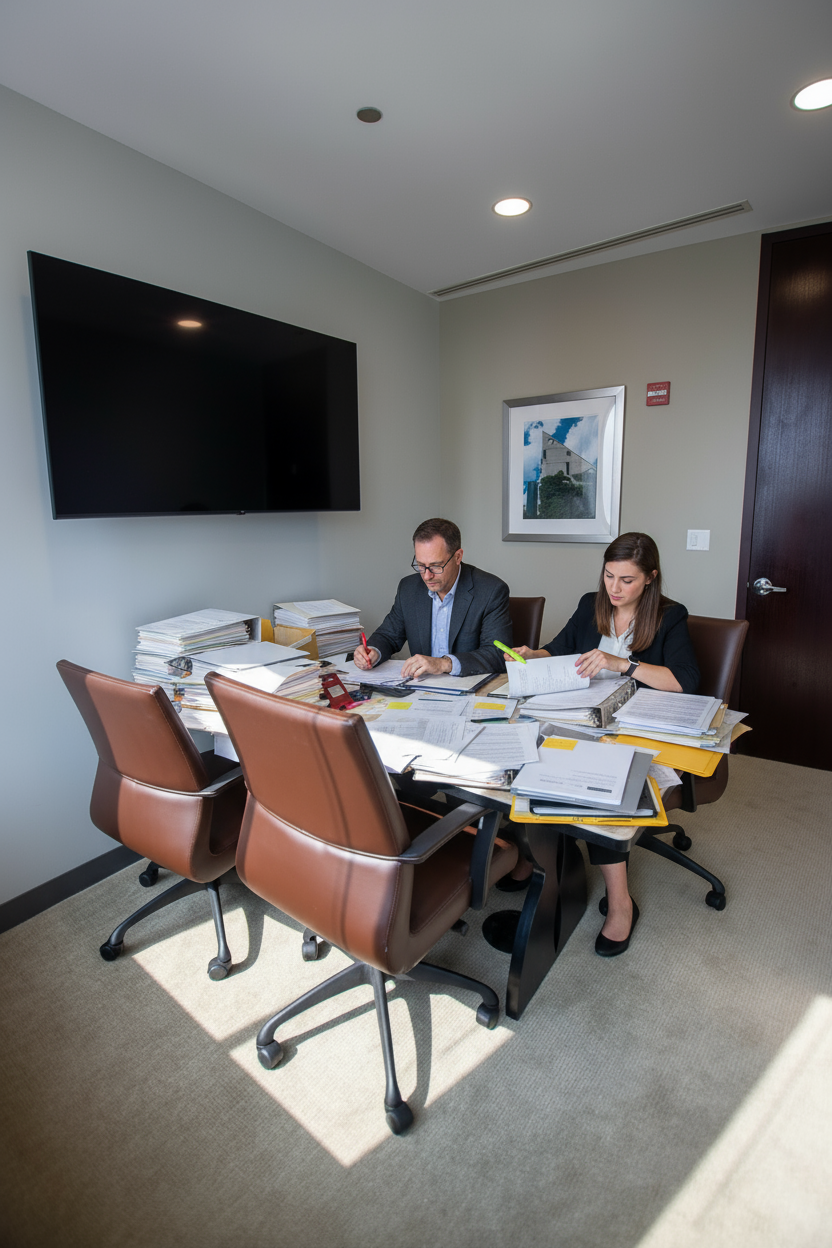Trade Sanctions in Forensic Investigations
Trade sanctions are government rules that restrict trade with certain countries or groups to push for foreign policy goals. As these restrictions become stricter in 2025, there's growing pressure on organizations to follow the rules and avoid penalties. Forensic accounting investigations now play a big role, using accounting skills to uncover fraud, money laundering, and violations tied to these sanctions.
With rising global tensions and more sanctions from agencies like the U.S. Office of Foreign Assets Control (OFAC), companies face tough new challenges. Forensic and investigative accounting helps businesses detect and report hidden transactions or suspicious activity that could bring legal trouble. These investigations—often part of a forensic accounting audit and investigation—frequently involve complex cross-border transactions and require specialized expertise.
Experienced forensic accountants not only protect companies from heavy fines but also keep operations running smoothly. Staying compliant means regularly reviewing transactions, updating internal controls, and preparing thorough forensic accounting investigation reports. This post will explain how trade sanctions shape forensic accounting investigations, highlight the biggest challenges of 2025, and share key strategies for staying ahead. Reliable forensic accounting and fraud investigations make it possible for companies to manage risk and protect their reputation in a fast-changing market.
What Are Trade Sanctions and How Do They Relate to Forensic Accounting Investigations
Trade sanctions present unique challenges in forensic accounting investigations. Each type of sanction (economic, financial, sectoral) creates different hurdles for tracing transactions and identifying illicit activity. Understanding the varieties and implications of sanctions is essential for anyone involved in a forensic accounting investigation, especially as regulatory scrutiny rises in 2025.
Key Types of Trade Sanctions Impacting Investigations
Different sanctions force forensic accountants to adapt their investigation techniques:
- Economic sanctions : These ban the flow of specific goods or all trade with targeted countries. In a forensic accounting audit and investigation, professionals often check for improper imports or exports, look for smuggled goods, and review falsified shipping documents. This helps uncover concealed or illicit activities.
- Financial sanctions : When authorities freeze assets or block transactions tied to certain individuals or companies, it complicates tracking money. Forensic and investigative accounting teams must analyze alternative payment flows, such as the use of cryptocurrencies or indirect financial networks. Detecting these requires thorough forensic accounting and fraud investigations, often tracking hidden or creative ways to bypass restrictions.
- Sectoral sanctions : These limit trade within specific industries, such as energy or technology. In 2025, increased scrutiny of tech exports brings a focus on dual-use items (goods that can serve both civilian and military purposes). Forensic investigation accounting in these cases often means investigating complicated supply chains and following leads that cross multiple industries.
For more on real-world enforcement trends, the formation of the U.S. Trade Fraud Task Force in 2025 highlights the pressure on compliance, especially for importers. Mastering these challenges helps teams deliver accurate forensic accounting investigation reports and protect businesses from steep penalties. For added insight on tracing hidden assets in complex sanction environments, review How Forensic Accountants Trace Hidden Assets.
Challenges Trade Sanctions Create in Forensic Accounting Investigations
Investigating transactions under trade sanctions is not just about number crunching. Sanctions introduce barriers that limit access to needed data, increase legal risks, and bring up ethical dilemmas for any forensic accounting investigation. These challenges make the job tougher, but proven strategies can fill the gaps and deliver credible, actionable findings for compliance teams.
Overcoming Data Limitations in Sanctions Probes
Sanctions often shut off access to bank records, shipping documents, or transaction trails. To keep a forensic accounting fraud investigation moving, specialists use open-source intelligence (OSINT) to piece together missing links from corporate registries, news, and social data. Blockchain analysis reveals where digital assets try to slip through gaps in the sanctioned system. Collaboration with international regulators sometimes opens blocked doorways and exposes hidden relationships.
Investigators played a key role in the Iran sanctions case, uncovering trades routed through front companies by blending OSINT, sanctions watch lists, and cross-border data sharing. For compliance teams, the payoff comes from:
- Documenting every source and finding to maintain a strong audit trail and clear forensic accounting investigation report.
- Mapping data flows from red flag to final report , so your results can withstand external scrutiny.
For a practical view on proven methods, see the role of forensics in sanctions investigations and how these contribute to effective forensic accounting and investigation reporting.
Navigating Legal and Ethical Issues
Trade sanction probes demand tight compliance with global laws like the U.S. Export Administration Regulations. During each forensic and investigative accounting assignment, practitioners must respect legal red lines as they gather, interpret, and report evidence. Ethical dilemmas can emerge: what if a finding risks privacy or triggers legal harm for innocent parties? Here, building a defensible forensic accounting investigation report is key. Stick to a transparent approach by:
- Clearly explaining sources, limits, and assumptions.
- Disclosing findings in simple language, without sensationalism.
- Balancing required reporting with respect for privacy and legal obligations.
These steps make forensic accounting investigations credible and legally safe. For further guidance, read practical guides on conducting forensic accounting and internal investigations , which highlight steps to create thorough, defensible reports under complex regulations.
Strategies and Best Practices for Effective Forensic Accounting Investigations Under Sanctions
Strong compliance is the backbone of effective forensic accounting investigations. When companies put reliable controls in place, they reduce the chances of errors, fraud, or sanctions violations slipping through the cracks. Building this strong base helps spot red flags early, making forensic accounting audit and investigation efforts not only more thorough but less frequent—a better outcome for everyone involved.
Building a Strong Compliance Framework
A reliable compliance setup shields your business from trouble and streamlines forensic accounting and investigation work. Three steps stand out: regular audits, robust employee training, and comprehensive third-party risk assessments.
Regular audits keep your process honest and shine a light on weak spots before they draw regulator attention. Employee training arms staff with the skills needed to identify sanctions risks and raise concerns right away. Third-party risk reviews watch over vendors, partners, and intermediaries who may put your business at risk even if your own books look clean.
Start with these simple checklist ideas to keep forensic accounting investigations focused on prevention:
- Schedule quarterly internal audits for high-risk transactions and departments.
- Host yearly mandatory sanctions training for all employees, including brief quizzes to reinforce learning.
- Conduct updated due diligence for every new or existing vendor and intermediary.
- Monitor and document closure of any identified weaknesses or infractions within 30 days.
Investing in these steps means fewer issues slip by, saving both money and reputation down the line. For more on reliable practices, explore the latest role of forensics in sanctions investigations. To learn how these best practices align with broader business needs, see this deep dive into forensic accounting in organizations.
Conclusion
Trade sanctions make forensic accounting investigations more demanding, pushing professionals to use specialized methods and deeper financial analysis. Expert knowledge in forensic accounting and investigation is essential when reviewing complex transactions, tracing hidden assets, and building a strong forensic accounting investigation report. Sanctions add many layers of difficulty, but they also give skilled investigators the chance to protect companies, maintain compliance, and support justice.
As sanctions keep changing and regulatory pressure grows, companies must review their own exposure and act early. If your business deals in cross-border transactions or faces high-risk sectors, now is the right time to assess your controls and seek guidance from professionals skilled in forensic accounting investigations.
Invest in the right expertise. Dive deeper into the essential skills for forensic accountants to see how the right background and training help organizations tackle new sanction risks. Thank you for reading. Your next step: check your own company’s risk and reach out for forensic accounting support if concerns arise.




